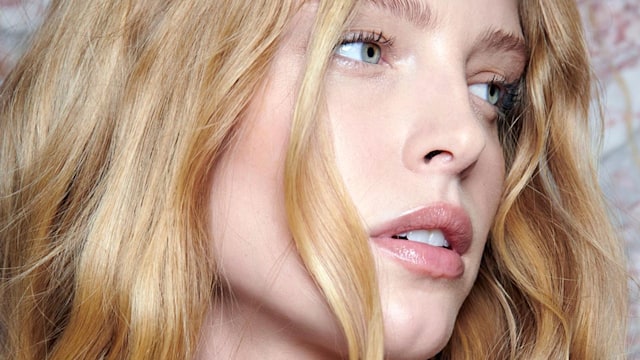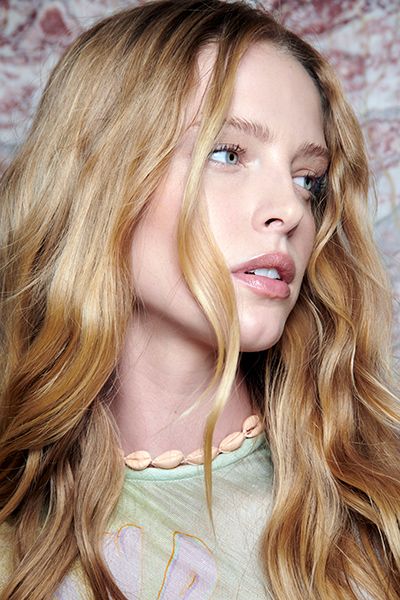Not all hair transformations are created equal – in fact, some are far easier to achieve than others. Opting for an elaborate updo, dying your hair the season's It-colour, or braving the chop are all perfectly feasible, but what happens if you do submit yourself to the mercy of your hair stylist's scissors and your new, shorter style doesn't quite live up to your expectations?
MORE: Sulphate-free shampoo: here's how it can benefit your hair - according to an expert
Clip-in hair extensions could well be your saviour. First things first, banish any notion of unsightly clips poking out from your scalp – these days, a seamless blend of your real hair and your extensions is totally achievable thanks to careful placement and painstaking colour matching. Chances are, you know plenty of people with hair extensions, but you'd struggle to pick out who on account of how subtle they can look.
Hello! Fashion caught up with Daniel Argenio, hair extensions expert and manager of Richy Hair UK's exclusive salon 65 Walton, to find out all that you need to know about clip-in hair extensions.
What are the different types of hair extensions?
"With a variety of hair extensions currently available in the market, it can be overwhelming for anyone opting for hair extensions to choose one that is most suited for their hair type," Daniel explains. "The popular ones in the industry are tape-ins, clip-ins, sew-ins, keratin bonds and halo extensions. When it comes to choosing the right hair extensions for your hair type, it is best to consult your hair stylist."
READ: 3 retro-inspired hairstyles that are majorly trending right now
What are clip-in hair extensions?
"Clip-ins are best for those with thin hair. The clips are attached to your natural hair and are super easy to install. For those with thin hair, at Richy Hair UK we would typically place them at the bottom to ensure it is not visible when styled. Tease the top of your hair where there are no extensions to give it more volume. Use a curling wand or a blow dryer to blend the extensions with your natural hair."
Natural vs. synthetic hair: what is the difference?
"The greatest difference is how long they both last. Natural hair is made from real human hair and can last you between six and 12 months. They are more expensive, but a long-term investment. Feel free to style your natural hair extensions like you would with your real hair.
"Synthetic hair, on the other hand, has an average lifespan of one to three months. If your synthetic hair extensions do last for three months, consider yourself lucky. Synthetic hair extensions are cheaper; however, you’d also need to switch them out very often. Synthetic hair tends to blend less well with your natural hair, look shinier and has a plastic feel to it. It tangles more often and damages easily."
Do clip-in hair extensions damage your real hair?
"When applied by a professional and certified hair extensions specialist, expect minimal damage to your real hair. Expert stylists understand the science behind applying hair extensions and will first assess your hair health and texture," Daniel explains.
How to care for clip-in extensions at home?
Extensions can soak up your hair's natural oil, and so it's important to keep them clean and looking fresh. Before washing, detangle your extensions with a wide-tooth comb or a soft-bristle brush, as doing so while wet can make the hairs fall out. Fill your sink with warm water (as hot water can affect the weft) and smooth a gentle, moisturising shampoo down the strands, and then rinse thoroughly with cold water. Allow your extensions to air dry, squeezing them with a towel to remove excess moisture. Curb the temptation to reach for the hairdryer, only using it on a super low heat if necessary.
Like this story? Sign up to our Hello! Fashion newsletter to get your weekly 'Fashion Fix' delivered straight to your inbox.


